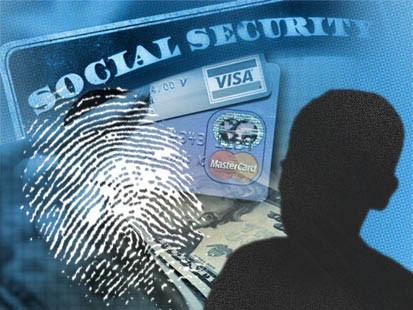
As the holidays and holiday shopping approach, it’s a good time to think about financial and identity safety. Whether you are shopping at the mall or online, there are a number of things to think about to protect your financial well-being:
Protecting your credit cards:
- Keep your card number private.
- Limit the number of cards you carry.
- Some recommend that you sign the card immediately to protect you if someone else gets hold of it. Some say sign it with ‘Ask for additional ID’ so the vendor will verify that you are the owner of the card. In the world of ‘Slide your card’ yourself, this may not be effective.
- Draw a line through any blank lines when signing the receipt so no one can add additional charges or amounts. Make sure you total the bill when needed, such as in restaurants.
- Save your receipts and verify your purchases on your monthly statements.
- Don’t give the card number over the phone unless you initiated the call and you are talking to an enterprise you trust.
- Do not ever respond to an email that asks you for account information, even if it looks like a bank or company you trust.
- Consider paperless statements to remove any sensitive information from the postal system.
- Shred statements and other documents with personal information before you dispose of them.
- Keep your information current – notify your bank or credit card companies if you move; periodically check that they have your correct email, phone and address.
- Sign up for fraud alerts on your cell phone.
- Check your credit score annually through the three credit bureaus – Transunion, Experian, and Equifax. You are entitled to one free credit report per year.
- If using your credit card online, be sure the URL of the site you are on begins with ‘https:’ and not just ‘http’. The ‘s’ indicates that the site is secure.
- If your card is lost or stolen, report it immediately.
- Securely store (under lock and key at home) either a copy of your credit card or the credit card number and contact information. Then if your card is lost or stolen, you will have the information handy to report it.
Protect your Social Security number:
- Do not carry your Social Security card with you.
- If you are asked to provide it, ask why, and ask if another form of identification is acceptable. Employers and financial institutions do need the number for wage and tax reporting purposes.
- Do not enter it online unless it is a secure web site.
Protect your online information with good passwords:
- Use strong passwords – complexity and length are very important. A 12 character password is much, much harder to crack that a 5 or 6 character password.
- Do not use dictionary words, birthdates, children’s or pets’ names. Even though longer is better, do not use well known phrases or song lyrics unless you transform them. For example, one might use ‘iwtBotiWtWot!’ in place of ‘It was the best of times, it was the worst of times’. You could also string random words together (wiz@rdraBB1tbas3b@ll [wizard/rabbit/baseball]) to create a complex password. Intersperse use of special characters, upper case letters and numbers to add to the complexity.
- Do not save passwords on your computer.
- Do not use the same password for different sites.
- Consider using a password manager app on your computer or phone to keep track of your login credentials.
- Consider multifactor security, such as systems that require biometrics like a fingerprint or facial recognition.
Protect your phone and computer:
- Set your phone and computer to lock the screen after five minutes of inactivity.
- Install a ‘find your phone’ app – preferably one with an option to erase your phone’s data remotely if you are not able to recover the phone.
- Only download from trusted sites.
- When walking away from your computer at work, pressing the Windows key plus the letter L will lock the screen for you.
- Be careful of public Wi-Fi networks – other phones may be able to access yours.
- Keep your operating system up to date in order to have the most current security.
- Avoid storing or letting your phone ‘remember’ personal data such as passwords.
- Do not store personal data in an unencrypted format such as a notes app.
- When disposing of a computer, use a wipe utility program to overwrite the hard drive or remove the hard drive and physically destroy it.
- When disposing of your phone, remove the SIM card and other information stored on the phone such as the phone book, lists of calls made, photos, messages, and web search history. Your owner’s manual may be able to direct you in doing this.
Protect your paper:
- Limit what you carry.
- Shred receipts, credit offers, credit applications, insurance forms, physician statements, checks, bank statements, expired charge cards and similar documents.
- Remove and destroy labels from prescription bottles before you throw them out or recycle them.
- Take outgoing mail to a mailbox or the post office. Promptly remove mail from the mailbox.
It seems like a lot! These are, however, good habits we should adopt to protect our privacy.
Resources:
- Credit Card Protection
- Smartphone Security Tips
- Protecting Financial Information
- Protecting Against Credit Card Fraud
- Five Ways to Help Protect Your Identity
- How to Keep Your Personal Information Secure


